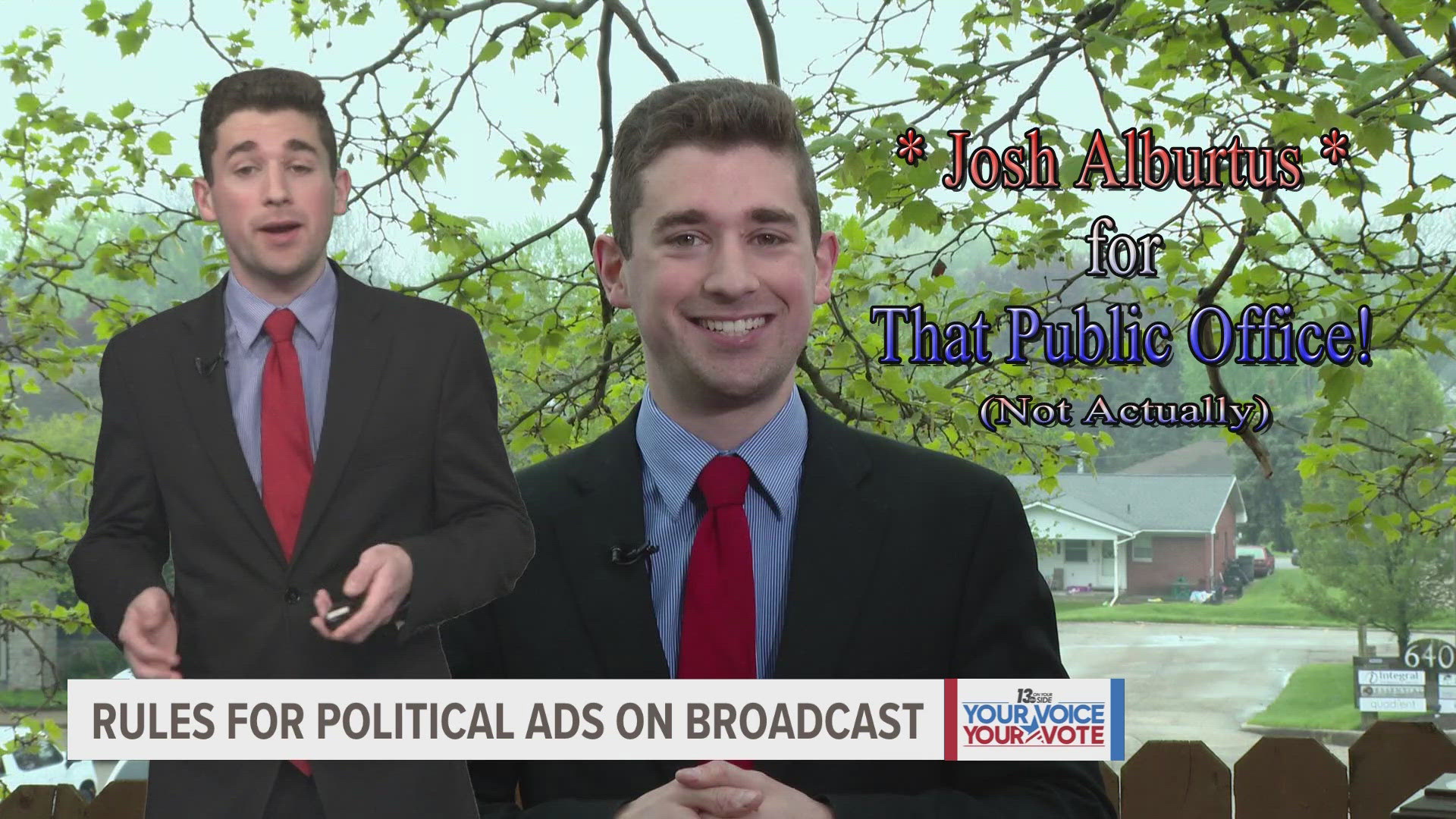GRAND RAPIDS, Mich. — 2024 is set to be another year where candidates for public office will look to fill the airwaves with their pitch to voters.
But what if their ads contain misinformation? Do broadcast stations still have to run them?
That answer lies not in the newsroom but in the rules of the Federal Communications Commission.
"Once a political candidate has declared for office, and they're determined to be a legal, official candidate, a broadcast outlet is actually prohibited from censoring anything in their commercial message," said Dr. Len O'Kelly, who works as the associate director of the School of Communications at Grand Valley State University.
According to the FCC's rules, a qualified candidate needs to have reached the following thresholds:
- Has publicly announced their intention to run for office
- Is qualified under applicable state and/or federal law to hold the office being sought
- Qualifies for a place on the ballot, or is running as a write-in and has made a substantial showing of his/her candidacy.
It's only when the ad is run by a non-candidate third party that the ad can be changed.
"If we're talking about a third party buying an ad, like the 'Citizens for Better Plumbing,' let's say, whatever they call themselves, and they're running an ad in a campaign, those rules don't apply," O'Kelly explained. "The television station could go in and say, 'That doesn't seem right. We're going to take that out.'"
But some misinformation that could come in candidates' ads may be difficult to identify.
While some states like Michigan have moved to mandate things like disclosures for artificial intelligence being used in these ads, the situation still remains concerning for some.
"I'm, as you know, as strong a First Amendment promoter as you're going to find," O'Kelly said. "But at the same time, if we're relying on people to do their own homework and do their own research, how do they know what sources they're evaluating to come to the decision that something is correct or not?"
So what can voters really do to make sure that they know what's true and what's not?
"They really just have to be vigilant," O'Kelly said. "I don't see the rules changing because of that protection, that we want to make sure that we don't start restricting political speech. I mean, I think that the extreme the other way could be disastrous also."
►Make it easy to keep up to date with more stories like this. Download the 13 ON YOUR SIDE app now.
Have a news tip? Email news@13onyourside.com, visit our Facebook page or Twitter. Subscribe to our YouTube channel.
Watch 13 ON YOUR SIDE for free on Roku, Amazon Fire TV Stick, Apple TV and on your phone.

